SAS World War Two hero honoured 75 years after death in France
- Published
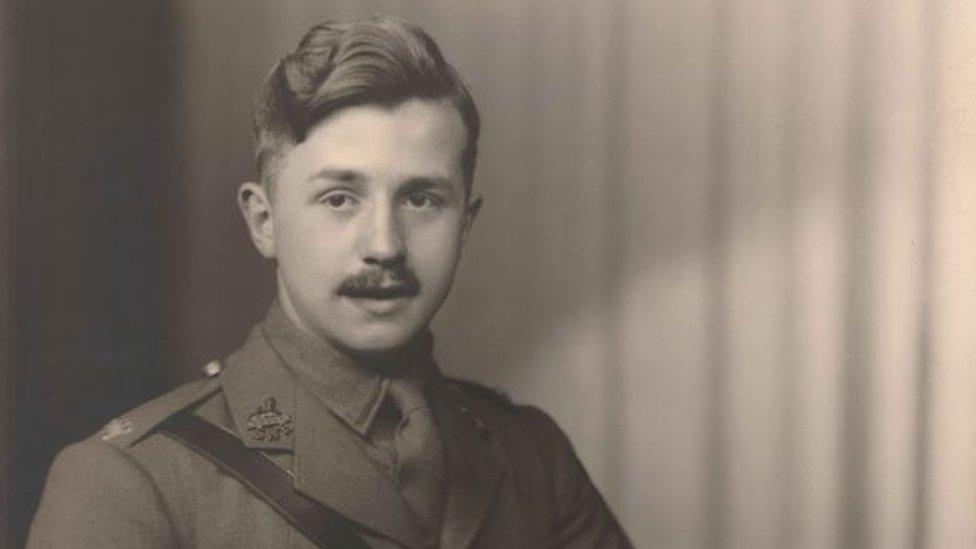
Lt Tomos Stephens was a member of the Special Air Service (SAS), a special forces unit in the Army
An SAS hero who was bludgeoned to death by German SS troops in World War Two is being remembered 75 years on.
Lt Tomos Stephens, 24, from Llansteffan, Carmarthenshire, and seven French resistance fighters died when their base near Verrieres in Vienne, France, was discovered in 1944.
Villagers are holding a memorial service for the men on Wednesday.
Lt Stephens was a member of the unit that parachuted in behind enemy lines as part of Operation Bulbasket.
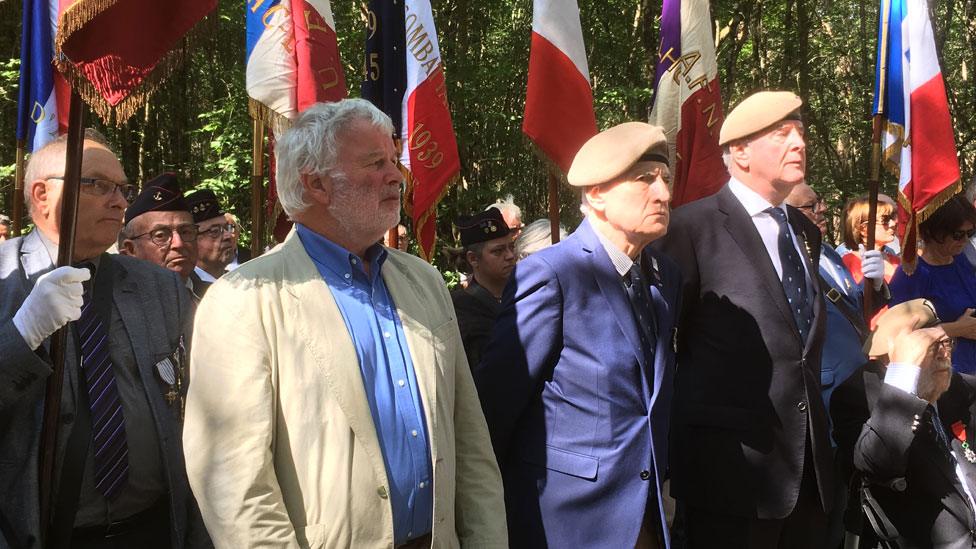
Lt Stephens' nephew John Stephens (second left) with veterans at the ceremony
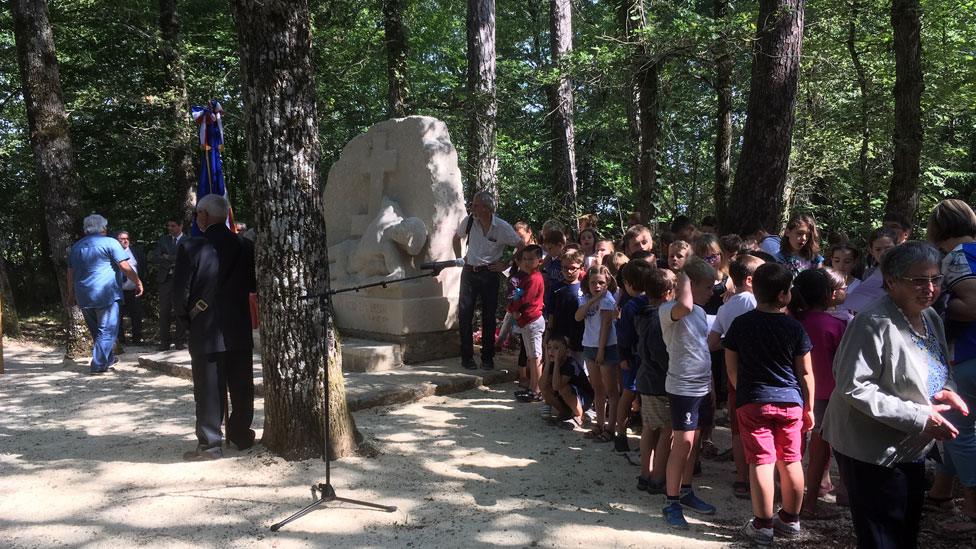
Children took part in the ceremony as well as veterans
Over 200 people gathered at the site of a memorial on the outskirts of Verrieres in central France, 75 years to the day after the men were killed.
Veterans from the UK and France were attending the ceremony at La Couarde.
Known as Twm by his comrades, Lt Stephens had been chosen for a key mission to confirm the existence of petrol trains that had been spotted by a French civilian.
After borrowing some civilian clothes, he cycled 37 miles (60km) to Chatellerault
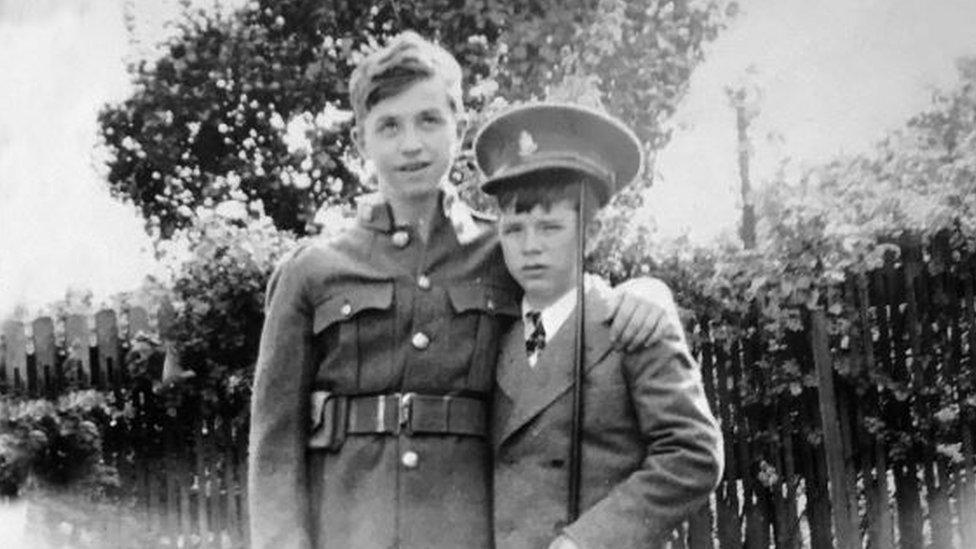
Tomos Stephens (left) with his brother Peter
He returned to the SAS secret forest base in the early hours of the 11 June after confirming the position of the petrol trains that were designed to resupply the Das Reich unit, which comprised 20,000 men and some 150 tanks.
The following day, 24 Mosquito bombers attacked the trains with 20mm cannon fire and 10 tonnes of bombs.
The mission was a success, but just weeks later on 3 July, the SAS unit's base was discovered and surrounded by 400 German troops.
In the subsequent battle, Lt Stephens was captured and bludgeoned to death with a rifle butt.
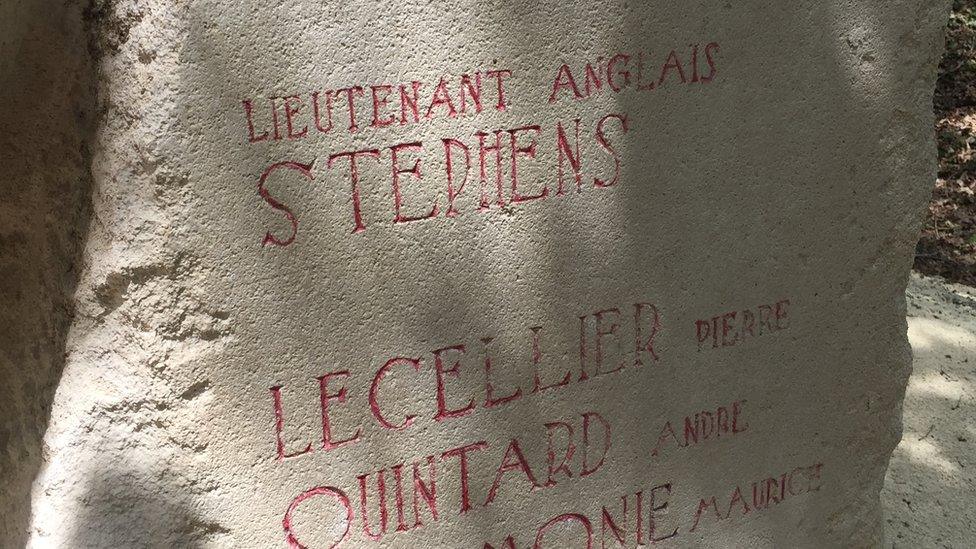
A memorial for Lt Stephens and seven French resistance fighters stands at La Couarde near Verrieres
His body was found by a French family and buried in the communal graveyard at Verrieres.
Seven French reservists, known as the Maquis, were also killed and some 30 members of the SAS taken prisoner would later be executed by SS troops after being forced to dig their own graves.
The SS played a major role in murdering millions of Jews, Poles, Soviet prisoners of war, Roma and others categorised as "racially inferior" during the Holocaust.
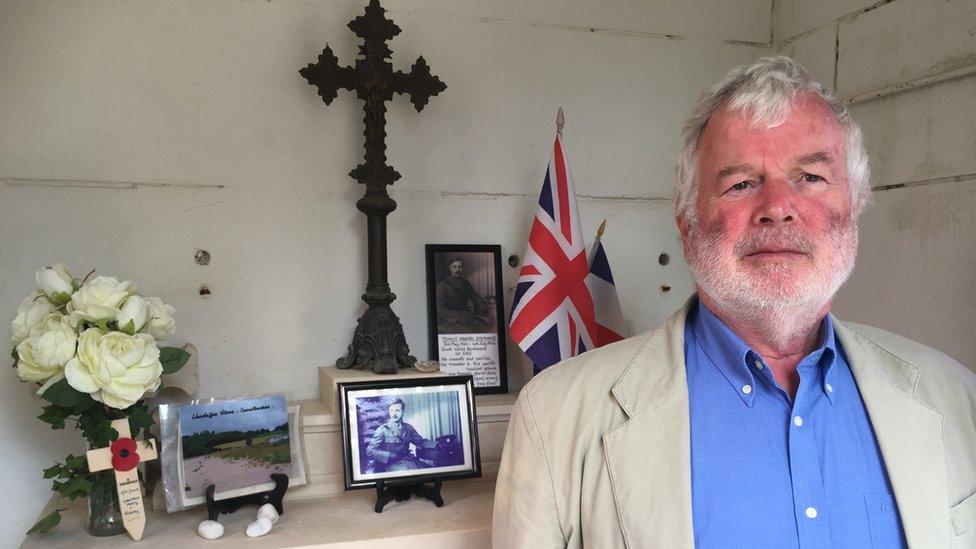
John Stephens at his uncle Tomos Stephens' graveside in Verrieres
Nigel Thomas, a former member of the SAS, lives just a few miles from Llansteffan. He said Lt Stephens' work was critical and added: "[He] made a tremendous difference.
"It sends shivers through me now to think he's from Llansteffan... so proud. We look back with total awe.
"They had very little kit and technology, compared to modern day soldiering."
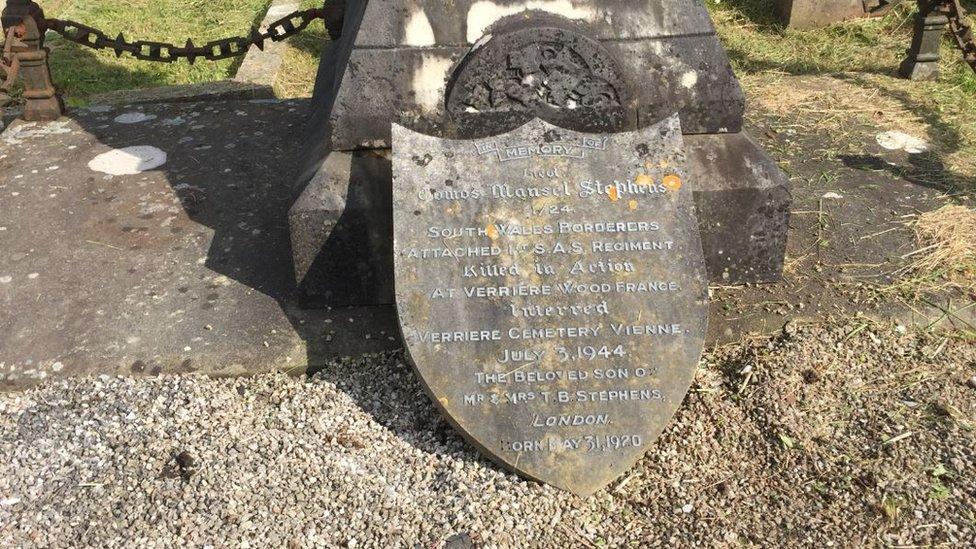
Lt Stephens is remembered on the family grave at Moriah Chapel, Llansteffan
- Published6 June 2019
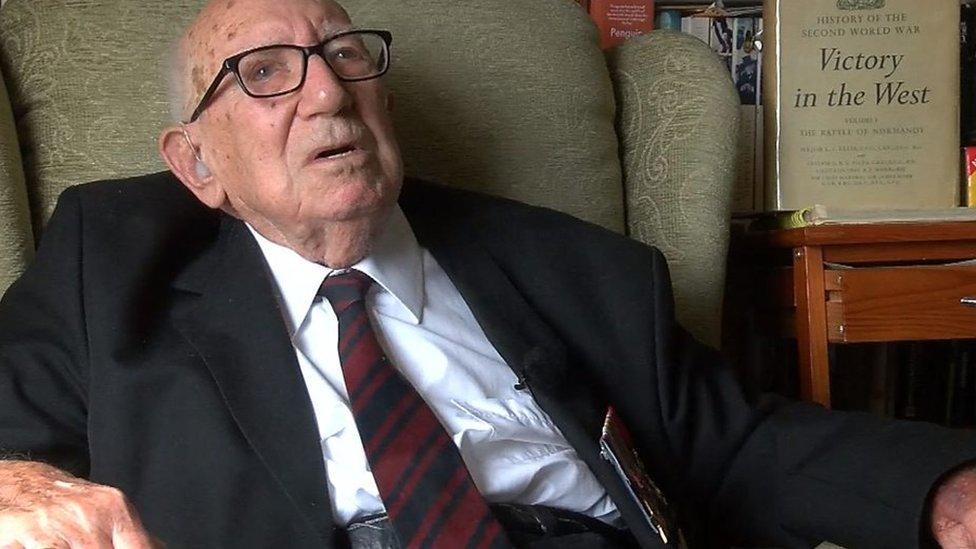
- Published5 June 2019
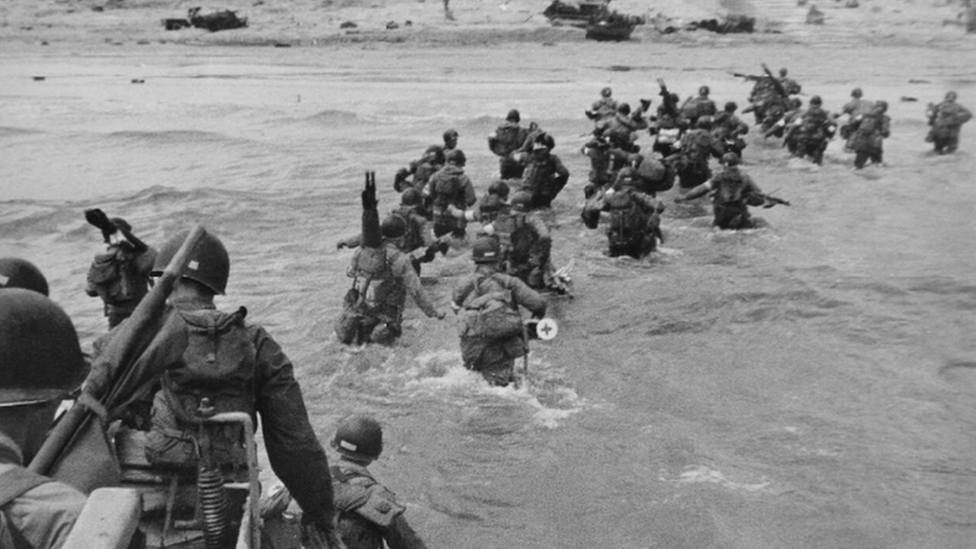
- Published2 March 2019
